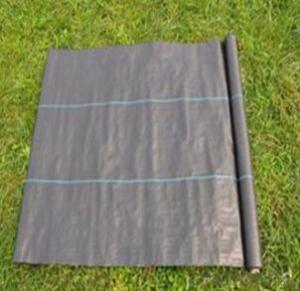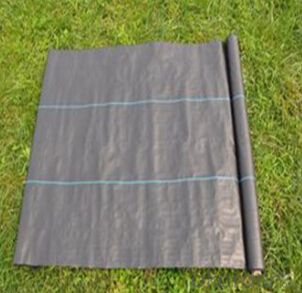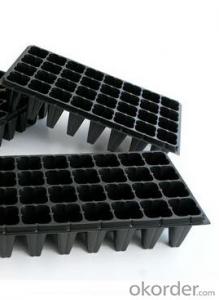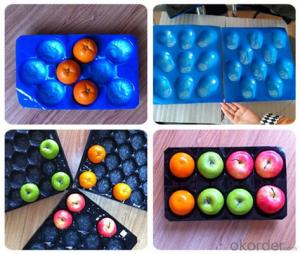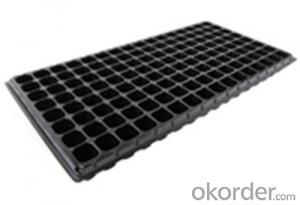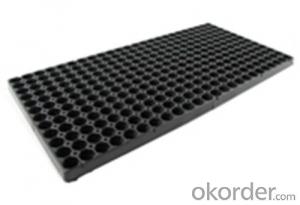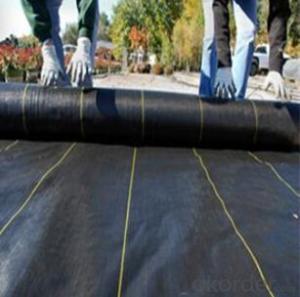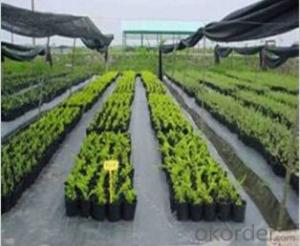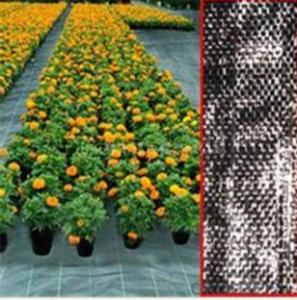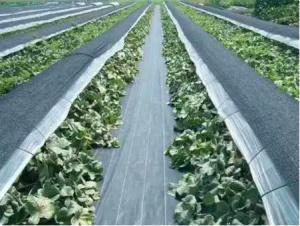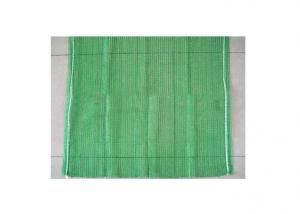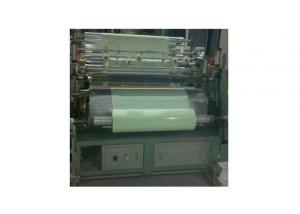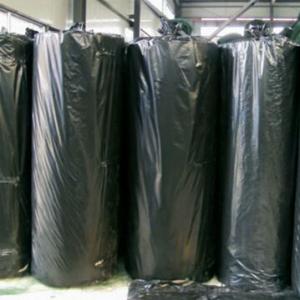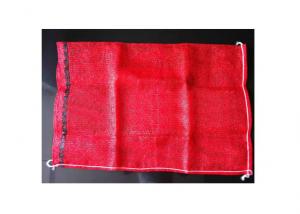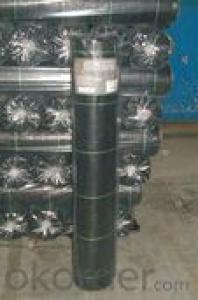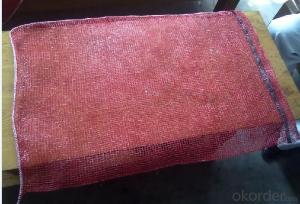weed mat ground cover for agriculture
- Loading Port:
- China Main Port
- Payment Terms:
- TT OR LC
- Min Order Qty:
- -
- Supply Capability:
- -
OKorder Service Pledge
OKorder Financial Service
You Might Also Like
Name: PP woven fabric for weed control and water savings
Feature:
Material: PP, virgin material or recycled material
Unit weight: 140g, 175g, 180g, 200g, 230g, 260g, 300g, 350g, 420g, 480g, 670g
Width: 50cm-600cm
Length: As per ur request
Color: Black with green/white grid
Tearing strength: From 0.5 to 2.2kN
Mesh: 10*10, 12*12, 14*14
UV stabilized: Up to your request
Function:
1. Cover crops in the ground surface
2. Can prevent weeds
3. Controlling soil humidity and the temperature
4. Against the insect
5. Does not affect the growth of the crops
6. Long service life
- Q: What are the different types of silage covers available?
- There are several different types of silage covers available, including oxygen barrier films, multi-layered plastic covers, tarpaulins, and oxygen-limiting bags.
- Q: What are some ground cover options for sandy soils?
- Some ground cover options for sandy soils include beach grass, seaside goldenrod, silver carpet, and creeping thyme. These plants are well-adapted to sandy soil conditions and can help stabilize the soil while providing attractive ground cover.
- Q: This question asks about the effects that agricultural plastic products have on the environment.
- <p>The environmental impacts of using agricultural plastic products include soil degradation due to the accumulation of non-biodegradable plastics, which can disrupt soil structure and reduce fertility. It contributes to pollution in water bodies as plastic residues can leach into groundwater and surface water, affecting aquatic life. Additionally, the production and disposal of these plastics contribute to greenhouse gas emissions, exacerbating climate change. There's also the issue of 'plastic smog', where microplastics released from these products can harm wildlife through ingestion or entanglement. Overall, the use of agricultural plastic products poses significant threats to ecosystems and biodiversity.</p>
- Q: Do nursery trays come with a bottom tray?
- Yes, nursery trays typically come with a bottom tray. The bottom tray is used to catch excess water and prevent it from leaking onto surfaces.
- Q: Are nursery trays suitable for growing aquatic fruits?
- No, nursery trays are not suitable for growing aquatic fruits as they are designed for terrestrial plants and lack the necessary features for water-based cultivation.
- Q: What are the potential long-term effects of using agricultural plastic products?
- The potential long-term effects of using agricultural plastic products include environmental pollution, soil degradation, and negative impacts on wildlife. Plastic waste can persist in the environment for hundreds of years, leading to the accumulation of non-biodegradable materials in soil and water bodies. This can disrupt natural ecosystems and harm plant and animal life. Additionally, the breakdown of plastic releases harmful chemicals and microplastics, which can contaminate soil and water sources. Proper disposal and sustainable alternatives are crucial to mitigate these long-term effects and ensure a more environmentally friendly agricultural industry.
- Q: Can nursery trays be used for air layering?
- Yes, nursery trays can be used for air layering. The trays provide a convenient and organized way to propagate plants through air layering, allowing for easy monitoring and care of the rooted cuttings.
- Q: My 11 week old puppy MIGHT have eaten half of a plastic lid. Those that top spray bottles. If he did, will he digest it normally?
- Plastic will be around for centuries in city dumps, so no, the dog CAN NOT digest plastic, it has to come out one way or the other, if she doesn't poop it out it will cause a blockage, Watch him for the next 12 hrs, if it doesn't come out then get to the vet before it causes real damage, he may need surgery to remove it.
- Q: Can ground cover plants be used to create a formal or structured garden design?
- Yes, ground cover plants can definitely be used to create a formal or structured garden design. When strategically placed and maintained, ground cover plants can help define pathways, edges, and borders, adding a sense of order and structure to the garden. Additionally, their low-growing habit can provide a uniform carpet-like appearance, which is often desired in formal garden designs.
- Q: My plastic surgeon has a D.O. (Doctor of Osteopathic Medicine) and a F.O.C.O.O. (Fellow of the Osteopathic College of Ophthalmology and Otorhinolaryngology). I am worried because he isn't part of the American Society of Plastic Surgeons. Are these good credentials for a plastic surgeon?
- When we refer to a plastic surgeon as board-certified, we mean one who is certified by the American Board of Plastic Surgery or the Royal College of Physicians and Surgeons of Canada. The ABPS is the only board recognized by the American Board of Medical Specialties (ABMS) to certify physicians in the full range of plastic and reconstructive procedures. To be certified by the ABPS, a physician must have at least five years of approved surgical training, including a residency in plastic surgery. He or she must also pass a comprehensive written and oral exams in plastic surgery.
Send your message to us
weed mat ground cover for agriculture
- Loading Port:
- China Main Port
- Payment Terms:
- TT OR LC
- Min Order Qty:
- -
- Supply Capability:
- -
OKorder Service Pledge
OKorder Financial Service
Similar products
Hot products
Hot Searches
Related keywords
